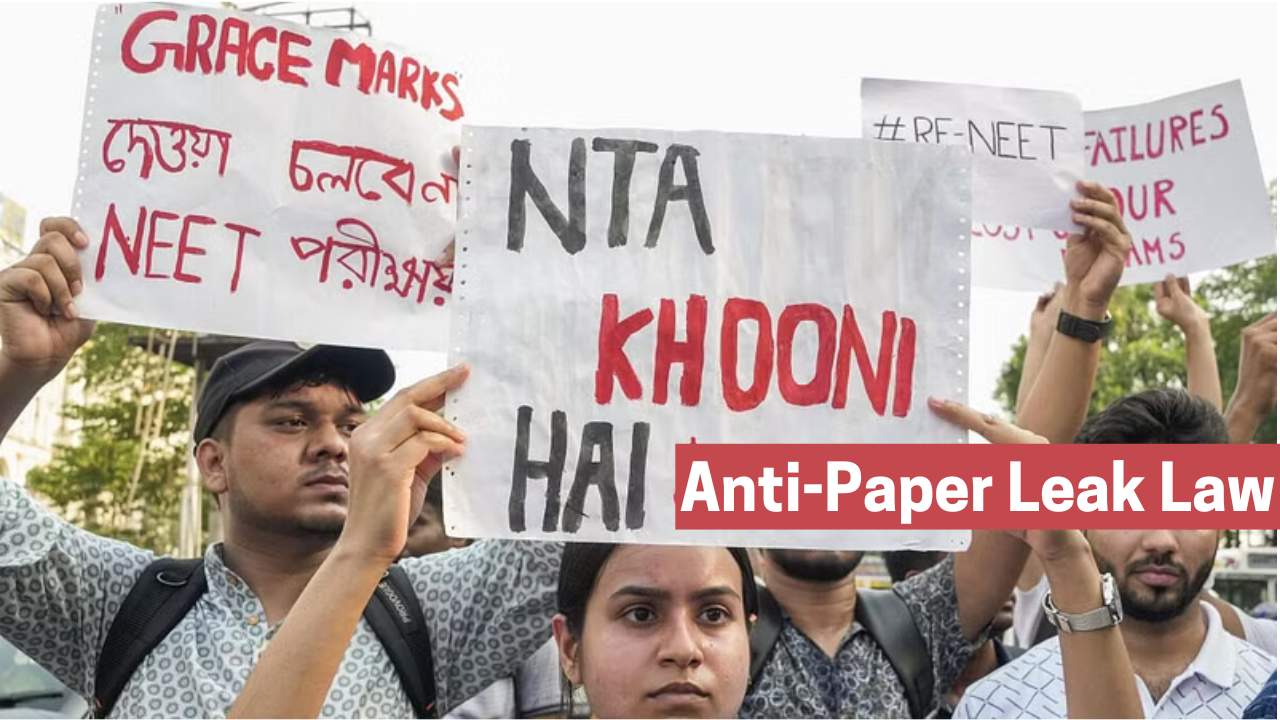The Centre announced the implementation of the Anti-Paper Leak Law, a significant step towards curbing unfair practices in public examinations. This new legislation mandates the National Recruitment Agency (NRA) to establish rules, standards, and guidelines for conducting computer-based tests, aiming to enhance the integrity of recruitment processes across various public sectors.
The release of these rules follows closely on the heels of the Public Examinations (Prevention of Unfair Means) Act, 2024, which marks the first national effort to prohibit cheating in recruitment examinations held by various public agencies. This landmark Act was passed by the Rajya Sabha on February 9, just three days after it received approval from the Lok Sabha on February 6. President Droupadi Murmu gave her assent to the bill on February 12, officially enacting it into law.
- JKBOSE 11th Result 2025, Search by Name or Roll No, Download PDF
- Indian Coast Guard Recruitment 2024, Apply Online for Various Vacancies
- FCI Recruitment 2024 Notification PDF, 33,566 Vacancies, Apply Online
- Army MES Recruitment 2024 Notification PDF, 41822 Vacancies, Apply Online
- IBPS PO Cut Off 2024 Released, Check Prelims Category-wise and Section-wise Cut Off Marks
The Act is designed to prevent unfair means in examinations conducted by prominent bodies such as the Union Public Service Commission (UPSC), the Staff Selection Commission (SSC), the railways, banking recruitment examinations, and the National Testing Agency (NTA), among others. The law includes stringent provisions for those caught cheating, with penalties ranging from three to five years of imprisonment. Individuals involved in organized cheating crimes face even harsher penalties, with imprisonment ranging from five to ten years and a minimum fine of Rs 1 crore.
The recently issued Public Examinations (Prevention of Unfair Means) Rules, 2024, dated June 23, outline detailed measures for ensuring the integrity of the examination process. These measures include the engagement of other government agencies by public examination authorities, the preparation of norms and standards, and the reporting of incidents of unfair practices.
“The National Recruitment Agency, on behalf of the central government, shall in consultation with the stakeholders, prepare norms, standards, and guidelines for the computer-based test mode of examination, which shall be notified by the central government,” the rules state.
These guidelines will encompass various aspects critical to maintaining examination integrity, such as standard operating procedures for the registration of public examination centers, space requirements within computer-based test centers, the layout of seating arrangements, specifications and layout of computer nodes, specifications for server and network infrastructure, and the establishment of an electronic platform for conducting computer-based tests.
The introduction of the Anti-Paper Leak Law represents a comprehensive approach to ensuring fairness and transparency in public examinations, reinforcing the credibility of recruitment processes, and deterring fraudulent activities.

